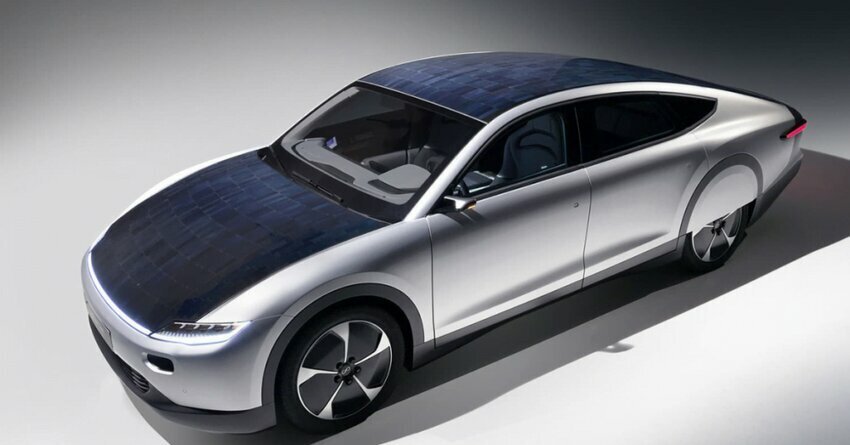The automotive industry is undergoing a significant transformation as the world increasingly recognizes the need for sustainable transportation solutions. Among the various innovations, solar-powered cars are emerging as a promising alternative to traditional fuel-based vehicles. This article explores the technology behind solar-powered cars, their benefits, challenges, and future potential in reshaping the automotive landscape.
Understanding Solar-Powered Cars
Solar-powered cars utilise photovoltaic (PV) cells to convert sunlight into electricity, which powers the vehicle’s electric motor. The technology is built around solar panels mounted on the vehicle’s surface. These panels capture sunlight and convert it into usable energy. The generated electricity can either directly power the vehicle or charge batteries for later use.
The efficiency of solar panels has improved significantly in recent years, allowing for better energy conversion rates. Innovations in materials, such as thin-film and bifacial solar cells, are paving the way for more efficient and flexible solar panels. This progress makes it increasingly feasible to integrate solar technology into vehicle design, offering an alternative energy source for transportation.
Environmental Benefits
One of the most significant advantages of solar-powered cars is their potential to reduce carbon emissions. Traditional vehicles that rely on fossil fuels contribute to greenhouse gas emissions, which exacerbate climate change. By harnessing solar energy, these cars produce zero tailpipe emissions during operation. This shift toward cleaner energy sources aligns with global efforts to combat climate change and promote sustainable living.
Moreover, solar-powered vehicles reduce the dependency on non-renewable energy sources. As the world grapples with the consequences of fossil fuel consumption, solar energy offers a sustainable solution that can be harnessed almost anywhere. This ability to utilise an abundant and renewable resource supports energy independence and long-term sustainability.
Car Wreckers and the Role of Sustainable Auto Disposal
As the automotive industry shifts towards eco-friendly innovations like solar-powered cars, the role of car wreckers becomes more vital. When old vehicles reach the end of their life, many individuals opt for selling cars for cash to wreckers, who then ensure sustainable auto disposal. By recycling materials such as metals, plastics, and batteries, wreckers help prevent environmental harm and support the production of cleaner technologies, including solar-powered vehicles. This responsible disposal process not only reduces waste but also promotes a more sustainable future for the automotive industry.
Cost Efficiency and Savings
While the initial investment in solar-powered vehicles may be higher than that of conventional cars, the long-term cost savings can be significant. The reduced reliance on gasoline or electricity from the grid translates to lower operating costs. Owners of solar-powered vehicles can enjoy substantial savings over time due to decreased fuel expenses.
Additionally, many regions offer incentives for adopting solar technology, such as tax credits or rebates for installing solar panels. These incentives can help offset the initial costs and encourage more consumers to consider solar-powered vehicles as a viable option. The combination of reduced operating costs and available incentives makes solar cars an increasingly attractive choice for eco-conscious consumers.
Also visit: https://cashforcarsnsw.com.au/cash-for-cars-baulkham/
Technological Advancements
The advancement of technology has played a crucial role in the development of solar-powered cars. Innovations in battery technology, such as lithium-ion batteries, have significantly enhanced energy storage capabilities. This improvement allows solar-powered vehicles to store excess energy generated during sunny periods for use during cloudy days or nighttime driving.
Moreover, the integration of smart technology into solar-powered cars enhances their efficiency. Intelligent energy management systems can optimise energy consumption and maximise the use of solar energy. These systems allow the vehicle to monitor energy usage, adjust settings based on driving conditions, and even communicate with the grid to manage energy flow more effectively.
Challenges and Limitations
Despite their potential, solar-powered cars face several challenges that must be addressed before widespread adoption can occur. One significant limitation is the efficiency of solar panels. Although advancements have been made, current solar technology still struggles to convert enough sunlight into usable energy to power a vehicle for extended distances. The range of solar-powered cars is typically lower than that of conventional electric vehicles.
Another challenge is the dependence on weather conditions. Solar energy generation is limited during cloudy or rainy days, which can affect the vehicle’s overall performance. This limitation necessitates a backup energy source or a more extensive charging infrastructure to support solar-powered vehicles in various weather conditions.
The Future of Solar-Powered Cars
The future of solar-powered cars appears promising, with ongoing research and development focused on overcoming current challenges. Researchers are exploring new materials and designs for solar cells to enhance efficiency and reduce manufacturing costs. Innovations such as solar-integrated roads and parking lots are also being explored, allowing for increased energy generation opportunities.
As consumer awareness of sustainability grows, there is a rising demand for eco-friendly transportation options. This trend is encouraging automakers to invest in solar technology and develop new models. Collaborative efforts between governments, researchers, and the automotive industry will play a crucial role in accelerating the adoption of solar-powered vehicles.
Conclusion
Solar-powered cars represent a significant step toward sustainable transportation solutions. Their ability to harness renewable energy sources aligns with global efforts to reduce carbon emissions and promote environmentally friendly practices. While challenges remain, technological advancements and increased consumer interest are driving the potential for solar-powered vehicles in the automotive market.
As the industry continues to evolve, solar-powered cars may play a vital role in reshaping the way society views transportation. With continued research and development, these vehicles have the potential to offer a cleaner, more sustainable alternative to traditional automobiles, ultimately benefiting the planet and future generations.
Read the latest blogs here.



